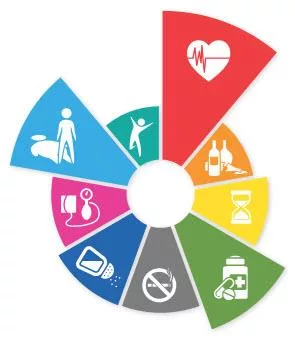UN agencies call for adding NCDs care in humanitarian emergencies

A recent report by UN agencies highlighted the importance of including noncommunicable diseases (NCDs) in humanitarian emergency preparedness to save more lives. Experts from WHO and UNHCR discussed the need to address NCDs in humanitarian settings at a global meeting in Denmark.
According to the report, humanitarian emergencies increase the risk of NCDs, with strokes and heart attacks likely to surge up to three times following a disaster. However, care and treatment for NCDs are often not prioritized in emergency responses, focusing on the most immediate needs.
The number of health crises has been on the rise, with WHO responding to 65 graded health emergencies in 2023, up from 40 a decade earlier. Similarly, UNHCR issued 43 emergency declarations to support 29 countries, the highest number in decades, with numbers expected to increase in 2024.
Dr. Tedros Adhanom Ghebreyesus, WHO Director-General, emphasized the need to integrate NCD care in emergency response to protect lives and improve health security. NCDs are often overlooked in humanitarian responses due to gaps in guidance, capacity, and resources, requiring more efforts to better prepare for and respond to health emergencies.
While some countries have implemented policies for NCD prevention and control in strengthening health systems, there is still a need for more comprehensive planning and adaptations for specialized services like dialysis and cancer care during emergencies. Experts stress the importance of integrating NCDs into emergency preparedness and response efforts for better outcomes.










